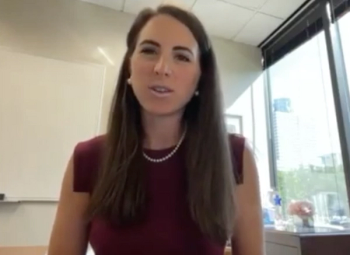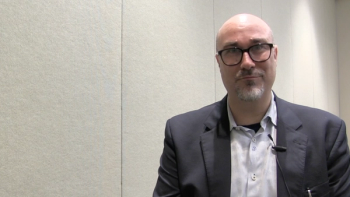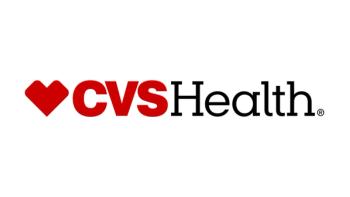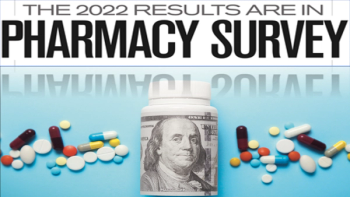Articles by Peter Wehrwein

In this episode of Tuning In to the C-Suite, Managing Editor of Managed Healthcare Executive, Peter Wehrwein, speaks with President of Value Evolutions and MHE Editorial Advisory Board Member, Doug Chaet, FACHE, about value-based care's current standing, the status of select payment models like bundled and episodic, and more.

The announcement of positive phase 3 results for the investigational Alzheimer’s disease drug comes against a backdrop of Aduhelm flaming out. Both drugs are predicated on the theory that Alzheimer’s is caused by beta-amyloid deposits.

McInerney, corporate director of population health and wellness coordination at AmeriHealth Caritas, headquartered in Philadelphia, is one of 10 winners in this year's Emerging Industry Leaders series.

Khatua, chief physician executive at Northshore Edward-Elmhurst Health, a health system based in Evanston, Illinois, is one of 10 winners in this year's Emerging Industry Leaders series.

The search for the causes of vitiligo continues. The findings in this study stand in contrast to another one conducted in eastern China that showed a high percentage of children with vitiligo had thyroid abnormalities.

Hu, president of Connected Networks at WellSky, a care coordination network headquartered in Boston, is one of 10 winners in this year's Emerging Industry Leaders series.

A recent review article lists six other JAK inhibitors that might be used as treatments for vitiligo in addition to ruxolitinib, the active ingredient in recently approved Opzelura.

The new 988 hotline may help more people get help and steer crisis care toward mental health interventions. But many obstacles to getting access to mental healthcare before or after a crisis remain.

Herrera, chief executive officer and co-founder of Yuvo Health, a technology-enabled administrative and managed-care solution for federally qualified health centers based in New York City, is one of 10 winners in this year's Emerging Industry Leaders series.

Gayles, chief health officer of Hazel Health, a pediatric physical and mental telehealth provider for K-12 schools, headquartered in San Francisco, is one of 10 winners in this year's Emerging Industry Leaders series.

LaFeir Fry, vice president of innovation operations at the Geisinger Health System in Danville, Pennsylvania, a regional healthcare provider and health plan, is one of 10 winners in this year's Emerging Industry Leaders series.

Davidson, vice president, employee health medical operations, at Memorial Hermann Health System, in Houston is one of 10 winners in this year's Emerging Industry Leaders series.

Long, the vice president of industry relations at IQVIA, gives his take on the lingering effects of the pandemic on the healthcare sector and pharmaceutical market.

The harm caused by weight-loss drugs have overwhelmed any benefit they may have. The repurposed diabetes drugs like Wegovy (semaglutide) have a strong safety profile, said presented at the annual Pharmacy Benefit Management Institute meeting.

Payers need to reframe how they view obesity as not just a health and wellness issue, but as a progressive chronic disease that needs medication, explained David Skomo, RPh, chief operations officer at WellDyne.

Executives at Arrive Health and OptumRx say they have ironed out many of the problems with real-time benefit checks, which delivers out-of-pocket cost and prior approval information at the time a prescription is being written.

Thus far, value-based contracts for prescription drugs has not been transformative because of the scalability challenge for payers, explained Gregory Warren, FSA, FCA, MAAA, partner and consulting actuary with Axene Health Partners.

Some of the evidence for digital therapeutic suffers from selection bias and relatively short studies, panelists at the Pharmacy Benefit Management Institute said today. They also discussed making the flood of data from the digital therapeutics accessible and useful to payers and clinicians.


Brandon Newman, an industry veteran, also listed the specialty drug spend, collaboration and real-time optimization as the pharmacy benefit management trends to watch.

Results reported at a meeting of the European Respiratory Society this week show a low rate of severe asthma attacks and sustained improvement in lung function among the children who participated in the yearlong add-on study.


In this week's episode, MHE Editor Briana Contreras and Managing Editor Peter Wehrwein met with CIO of Prime Therapeutics, Jim Graham to discuss the process of an organization’s digital transformation from a traditional Pharmacy Benefit Manager to a complete data-driven drug management system. Graham addressed the risks an organization may come across to successfully transition to this system, but also mentioned the benefits to come.

Findings reported in JAMA Network Open today show more than one-third of infected preschoolers are asymptomatic. The results call into question COVID-19 prevention strategies based on screening young children for symptoms.

The Centers for Medicare and Medicaid Services released results today showing that on a per capita basis, the net savings for low-revenue accountable care organizations (ACOs) was higher than the net savings for high-revenue ACOs.

Kaiser Family Foundation research shows that an 8% increase in enrollment from 2021 to 2022.

The nearly $19 million boost comes after the Inflation Reduction Act extended enhanced premium tax credits for ACA marketplaces policies through 2025.

Most of the respondents to the survey agreed that negotiations by pharmacy benefit managers (PBMs) lowers net drug prices. About half favored imposing transparency rules on PBMs.

The respondents were almost evenly split on whether it was a mistake for the FDA to approve Aduhelm, but a large majority agreed that CMS made the right decision to restrict Medicare coverage to those enrolled in clinical trials.

Opinion was split evenly on preexposure prophylaxis as a strategy for preventing HIV infections.



























